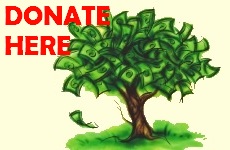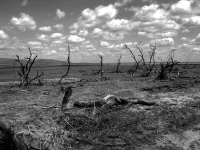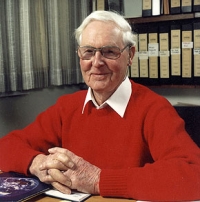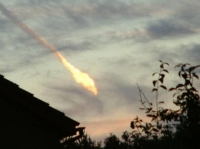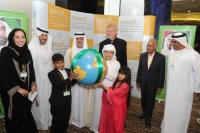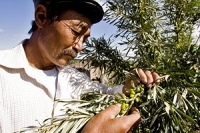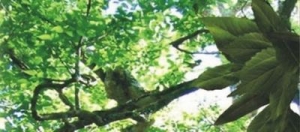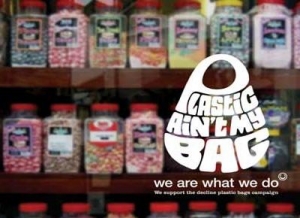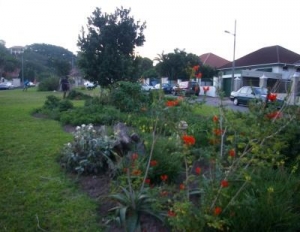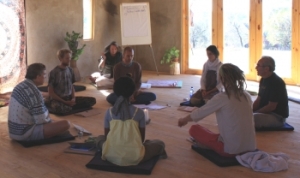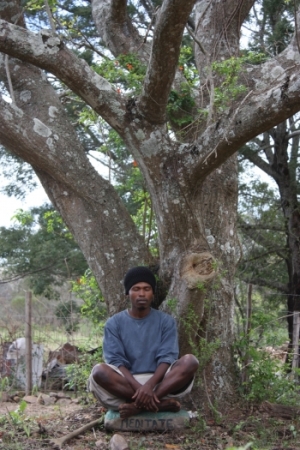Last week we reached Earth Overshoot day. In a blog post for LiveScience.com, World Wildlife Fund chief scientist John Hoekstra explains just how big we're really living.
Animal skeletons scattered everywhere. Not a tree or plant to be seen. Extreme weather conditions further destroy dilapidated houses and buildings. Is this the reality of what awaits our children after climate change has ravaged our beautiful planet?
The late eminent Australian scientist Professor Frank Fenner, who helped to wipe out smallpox, predicted humans would probably be extinct within 100 years, because of overpopulation, environmental destruction and climate change.
Hours after a meteor exploded over Russia and injured more than 1,000 people and an asteroid passed relatively close to Earth, residents in California reported seeing an unusual flash of light over the San Francisco Bay area that left many startled and thrilled.
The more we learn about the human-induced critical declines over the past 100 years in the life supporting biological systems, which gradually developed on our planet over the past 4 billion years, the easier it is to slide into a place of hopelessness.
As the World Bank strongly warns of the devastating effects of temperature rises and hopes for a ground-breaking COP18 outcome are low, the World Future Council concluded its 6th Annual General Meeting with a renewed commitment to preserving a healthy planet for future generations.
The proclamation of 22 April as International Mother Earth Day is an acknowledgement that the Earth and its ecosystems provide its inhabitants with life and sustenance.
In late January and again in the second week of March, the sun lashed out in a bit of a temper tantrum, on both occasions sending out a powerful interplanetary coronal mass ejection whose full effects reached Earth in a few days. We got lucky: Nothing much happened, and the resulting space weather storm didn’t pack as big a punch as expected.
Finding a solution to the short-term interests and ongoing unsustainable practices driving our societies and economies is a recurring issue. Few innovative ideas have emerged, fewer are being fully implemented and, as a consequence, we are exceeding planetary boundaries, threatening the security and wellbeing of those around us and those who follow us.
If I look back on the many moments of challenge and disturbance in my life it’s clear that a critical question at such moments has always been “How much truth am I willing to expose myself to?”
Having a problem with your internet or cellphone connection? Or making strange bleeps yourself? You may have to blame a higher power – the sun.
the past weekend's earthquake in the southern cape shows us once again that south africa is not invincible. nuclear power can have the same effects on our country as it did on japan. after two of our green times journalists went to see the documentary the nuclear comeback at the labia with earth life africa and while you were sleeping, they felt the need to tell the rest of south africa to watch it too. the film was directed by justin pemberton in 2008.
Natural forests maintain the physical and spiritual balance of our planet. As conduits of universal energy, the world€™s forests create a network of interlinking energy that provides a harmonious environment for life on Earth. With their roots in the Earth and their crowns in the Heavens, trees act as alchemists for the Divine, connecting what is above with what is below, and so providing the building blocks that are the foundation of life as we know it. With natural forests we share a sacred bond. They have been our silent, steadfast companions throughout Life€™s unfoldment. So intrinsic are natural forests to our existence that we have ceased to see them. We have forgotten the sacred bond we share.
A key element in green living is smart energy consumption. For this, one needs a simple yet practical plan. Good intentions often fade away when one needs to change old habits. To avoid this, commit to specific targets.
Over the next ten issues, we shall guide you on a step-by-step journey towards energy efficiency and converting to renewable sources. We only have one planet to live on. Earth needs all ecosystems to be in perfect balance and harmony. One way in which to contribute to sustained life on earth is by reducing the amount of energy we use and to switch to environmentally friendly energy sources. Along the way, brutal honesty will be needed to address some difficult and crucial questions. We will discover the correct approach to sustainable energy efficiency, while ensuring bottom-line improvement by means of the practical tools we provide.
On 30 March 2011 a first meeting to attempt to ban plastic bags from South Africa was held at the Two Oceans€™ Aquarium in Cape Town. 'The plastic bag we want banned is the checkout bag at supermarkets. Cashiers just hand them to you and ask: would you like a bag?€ says Haly McLellan, senior bird trainer at the Aquarium and initiator of the Ban the bag campaign. 'My ideal is that legislation in government will help to shape human behaviour. This is not a €˜smear the bag campaign€™, this is thinking compassionately about the environment.€
No man is an island, so the saying goes. Well here€™s a story of how one island transformed a group of neighbours into a community.
Stranack Road Island, shaped like a rugby ball, was once the home of four proud flamboyants (Delonix regia - see below).
The spectacular saffron umbrella of its flowers in summer seduced many of the residents to buy here. In 2008, however, the 80 year old trees became the target of a rather aggressive and destructive insect.
The World Future Council called for the design of the 21st century city to be an Ecopolis €“ to operate a circular 'urban metabolism€™ that incorporates circular flows of biological and technical resources - at the UN Climate Change Conference in Cancún. They presented their 'Regenerative City€ report €“' a road map to a 'regenerative€™ urban development.€
Heart currency fosters generosity and abundance, alleviates poverty, builds community and is good for the environment. This was how Dawn Pilatowicz explained the Cape Town Talent Exchange on the documentary 'Talents Accepted Here€. All these characteristics are lacking so often in the world of greed currency, otherwise known in South Africa as Rands and cents.
Ours is not a better way, ours is merely another way. The first annual Ecovillage Convergence in South Africa took place on 18-20 September 2009. This coming together of kindred spirits had been growing in the hearts of many who share the desire for authentic, earth-based living. The Convergence was intended as a `gathering of tribes` from fellow ecovillages and intentional communities in and around South Africa. The primary focus was to establish a living network through which communities and ecovillages may work together to raise awareness and facilitate the movement towards sustainable earth-based lifestyles around South Africa. The call was put out to all known established and emerging communities, ecovillages and projects countrywide. This intent was synchronistically reinforced when a fellow community planned the same event on the same date!
The Gospel of Thomas reflects the consciousness underlying an earth-based way of life: `If you bring forth what is within you, what you bring forth will save you. If you do not bring forth what is within you, what you do not bring forth will destroy you.` The realisation that there`s more to life than slaving away our precious moments, serving the intellect, is the first step towards releasing ourselves from the prison warder€™s mindset that has dominated for centuries.

